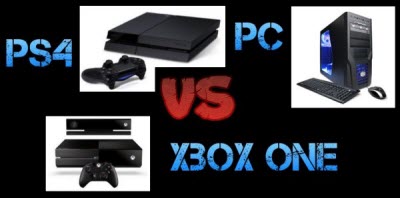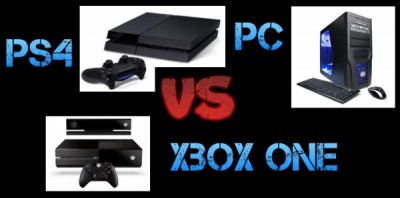If one were to scour the Internet using the search term console wars, I can guarantee that you would find literally thousands of pages dedicated to the subject and an equal amount of opinions to boot.
One has only to scroll to the comments section in You Tube, any game review, Facebook or tech blog to get a flavor of such opinions in the ongoing platform wars. Delectable as it may be to reproduce some of those delicious comments here, the name calling and put downs are enough to have you running for cover, so here’s a taste……
“You’re just an idiot from the sounds of it…..you retarded pleb, are you able to read?…..go buy a console…. it suits you better seeing as how you don’t seem to know how to use your PC…..“
It’s not that console and PC owners don’t get on, but you know what the Net’s like don’t you? One sharp, stinging barb across the digital fence and suddenly we’ve got a major conflict on our hands.
To quote George W Bush, “I know the human being and fish can coexist peacefully ” is quite apt here and you know, he was right. A truly visionary and insightful comment, when used in the correct circumstances.
Gentlemen, start your engines

The battle lines between the four platforms were drawn up long ago,with the principal players currently being the PC, PlayStation, XBox and to a lesser extent, the Wii . Of course others have also been on the fringes of this skirmish, with devices from Atari, Commodore and numerous other innovators.
But is it a war any more? Or are gamers resigned to a life of peaceful coexistence, an idea so eloquently proposed by the former president?
It’s interesting to note that the Playstation 3 and XBox 360 were launched in 2007 and 2005 respectively. That’s an awfully long time ago in the world of innovation and technology, light years in fact. During those seven or so years, the power of CPU’s and GPU’s has seen stratospheric performance increases and the graphic fidelity of games has achieved an almost photo realistic quality.

And therein lies the rub; the very basis of the cross platform divide. Many PC gamers will argue that, once a console is bought, it can’t be upgraded during it’s lifetime and will fall way behind the march of technology. Whilst that may be true, many console owners point out that games written for their specific platform will always work straight out of the box with no pesky tweaking and device drivers to worry about.
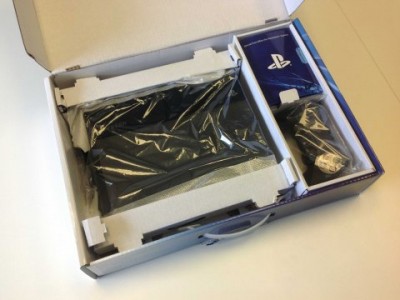
And let’s face it, there’s nothing quite so satisfying as unboxing that new shiny thing, admiring it’s intrinsic beauty, throwing the manual to one side and plugging it in. The very definition of plug and play, if you like. This is the essence of game consoles and the games designed for these platforms have one single aim; to run perfectly, with zero variables.
So it’s a trade off, either way. About the only upgrade available to the PS4 and PS3, is a bigger hard drive, without voiding the warranty, but sadly not an option for the Xbox.
The King is dead, long live the King
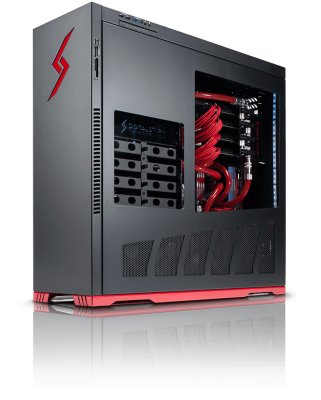
According to Gartner , PC shipments for 2013 suffered their worst decline in PC market history, a headline which could easily lead to lemming like behavior not seen since the great depression of the 1930’s. A similar, and more widely reported press release from IDC, painted yet another scenario of doom and gloom for the PC.
But dramatic headlines don’t always make for a great story, as both these reports clearly illustrate. Whilst it’s no surprise to find HP, Dell and Lenovo leading the pack, it would be interesting to have those shipments broken down into distinct corporate and domestic channels. We also see others in fact leading the field and it’s not at all clear which group others represents, although OEM‘s and VAR’s would seem a likely definition.
To add a little perspective, the Playstation 2 is the most successful games console to date and since its launch in 2000, Sony has shipped around 155 million units.
On the other hand, during 2011 alone, PC sales worldwide were 350 million units according to various sources, but of course this figure doesn’t break down into market sectors, so it’s not possible to tell how many of those PC’s were used for high end use, such as gaming.
There’s no doubt though, that the PC has suffered as consumer and corporate markets alike have shifted in favor of tablets and other smart, handheld devices. However, without wishing to get bogged down in statistical market reporting, it would be an interesting exercise to examine the peripheral and component market.
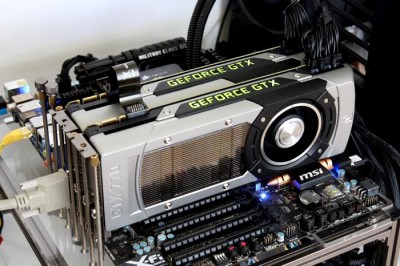
People upgrade their PC’s through its lifetime and gamers more than any other sector. This isn’t a niche market either; specialists and online retailers offer every PC component imaginable, from water coolers to SSDs.
In fact, one has to beg the question: how far does an upgrade go before the machine becomes a totally new PC? I confess that recently I upgraded the GPU, cooling system and motherboard, but kept the case because it’s discrete and quiet.
Who’s the boss?
Sony has confirmed that each PS4 sold will make a loss for the company, but will be recouped by game sales, subscriptions and peripherals.With the introduction of the PS3, Sony were able to effectively lock down their franchised game market with bullet proof anti piracy measures which have carried forward to the PS4. On the other hand, in spite of the rigorous efforts made by PC game developers, piracy is still a major problem, which may be one reason many developers choose to develop for the more lucrative and secure console market and subsequently port the game over to the PC at a later date. This is in stark contrast to the days when console gamers were asking ‘When’s it coming out for the Playstation, Dad ?’
An excellent example would be GTA V (Grand Theft Auto V) which broke all known records, by selling over 11 million units in 24 hours and generating $1 Billion for the developer Rockstar Entertainment. This title was only made available for PS3 and Xbox 360 and therefore the PC gaming community was understandably peeved to have been left out of the party. Which begs another question: is the PC a victim of its own success?
Maybe we need to hark back to Moore’s Law, when in 1965 Gordon. E. Moore, the Intel co founder stated in a paper that ‘The number of transistors incorporated in a chip will approximately double every 24 months’.
In 30 years, processor speeds have indeed shot ahead from 1Mhz to around 5Ghz and one has to wonder what effect the demand of high end graphic processing, such as in gaming, has had on processor and hardware development as we craved smoother rendition, higher resolutions and more frames per second.

It’s certainly true that the modding community, which loosely embraces game modification, overclocking, rig enhancement and a host of other PC specialities, has contributed in no small manner to the advancement of this genre and many PC gamers would argue that the route to Nirvana, whilst littered with chicanes and obstacles, is a road well traveled.
Of course, it’s a phoney war when all’s said and done, with all of us being winners. I like to to think of the analogy of driving that shiny new car out of the showroom, showing it to your neighbor, only to find he bought the same car last week and spent his every waking hour tweaking the engine and suspension, which he’ll continue to do until he moves onto his next project.
